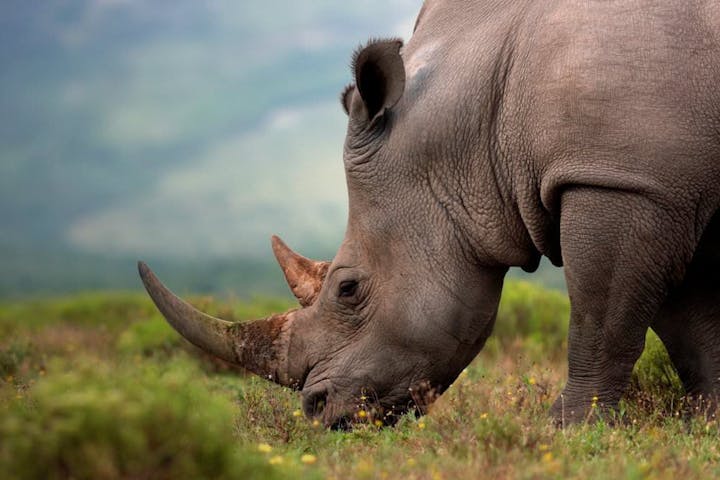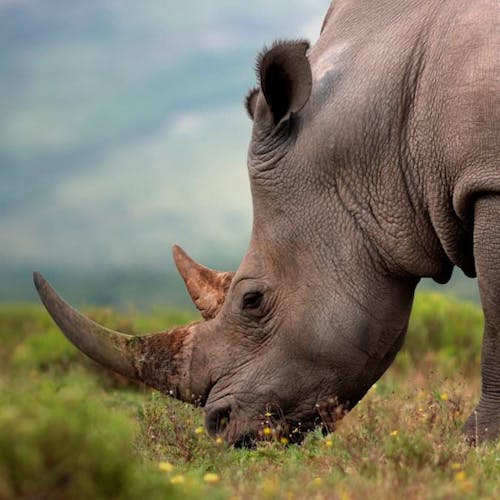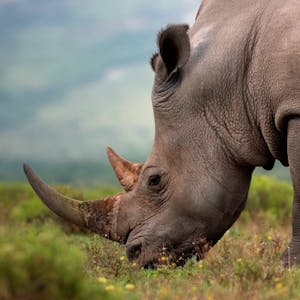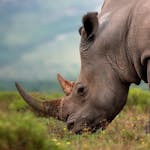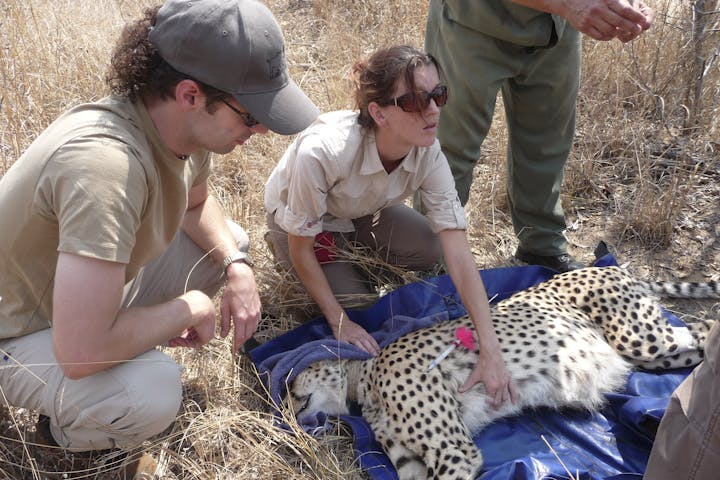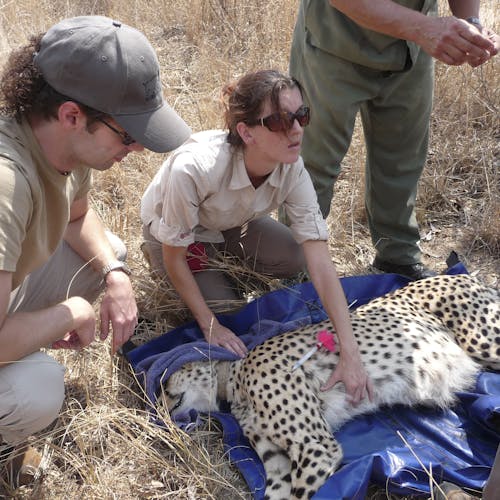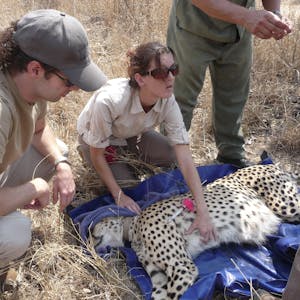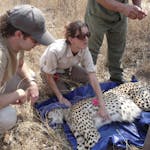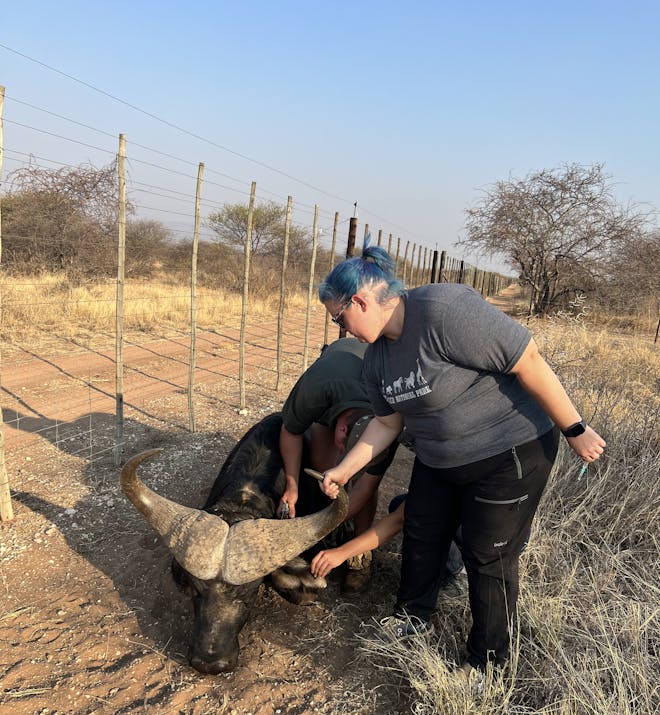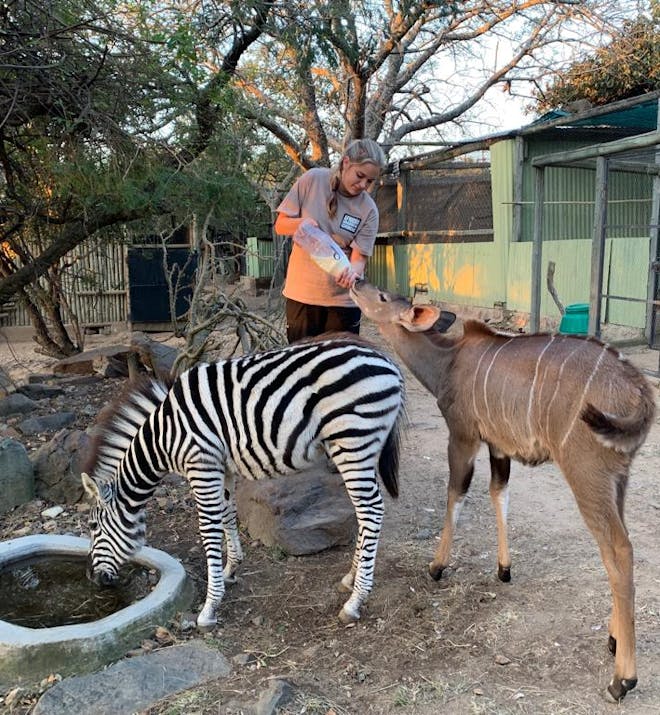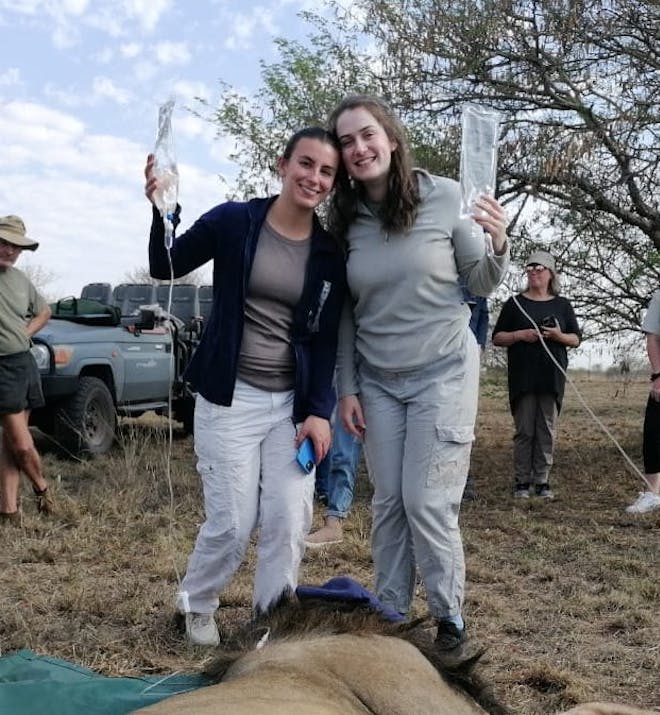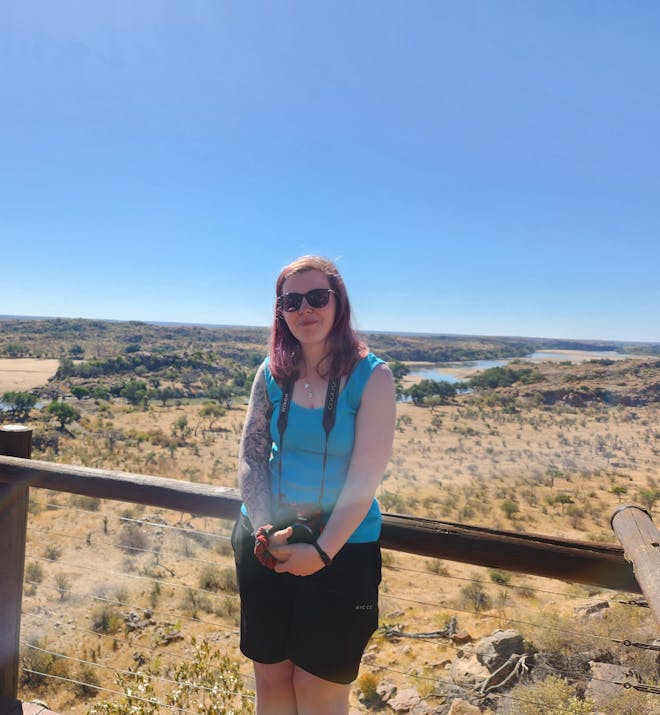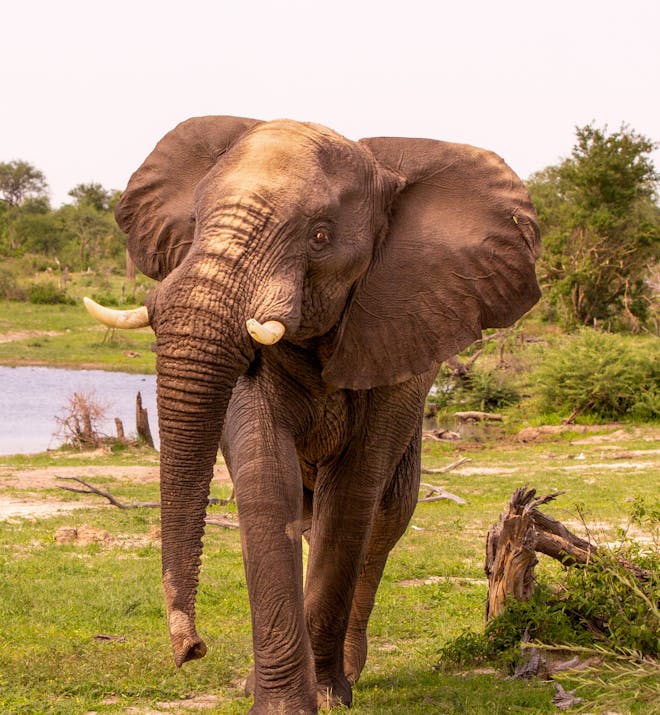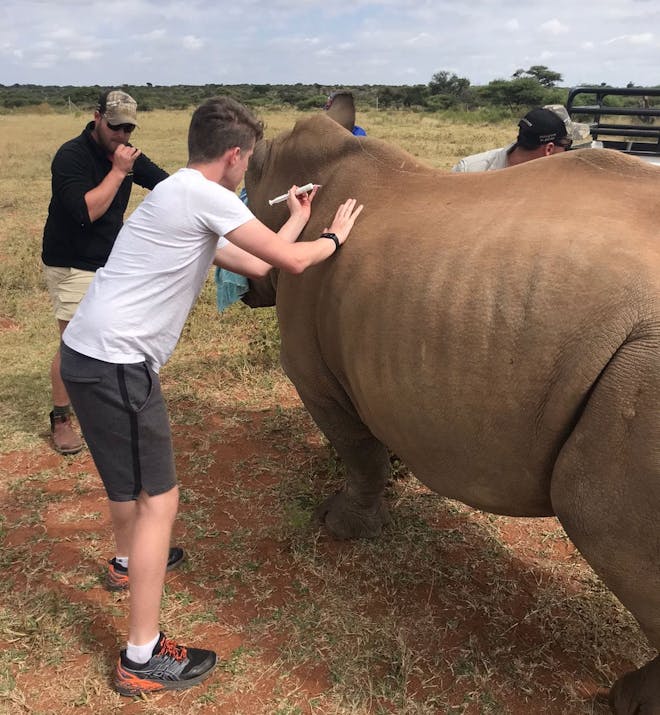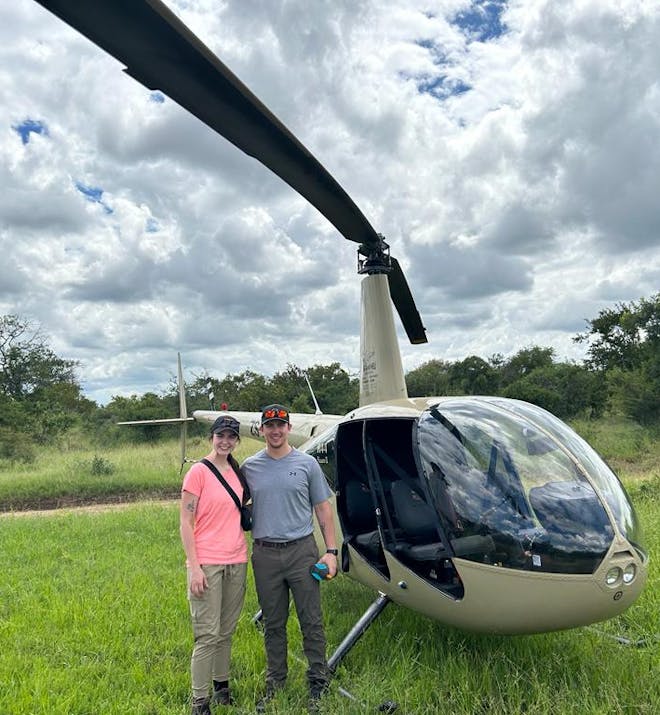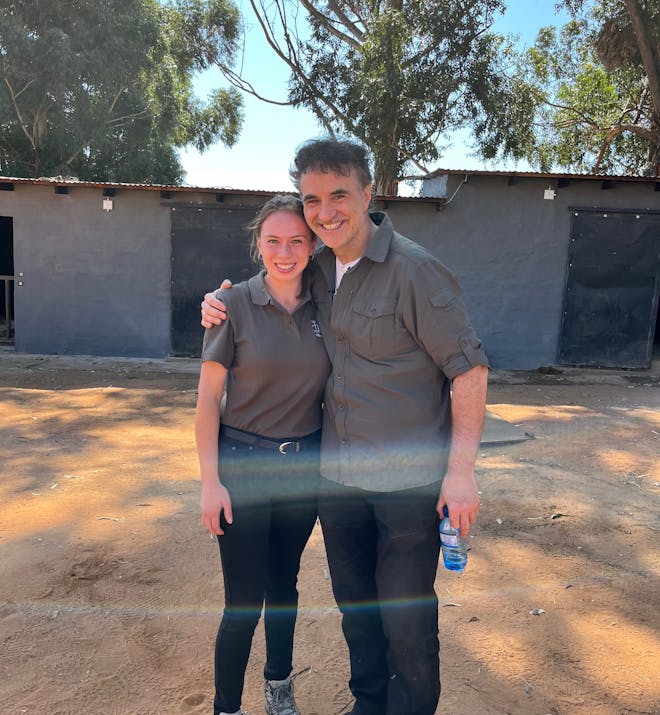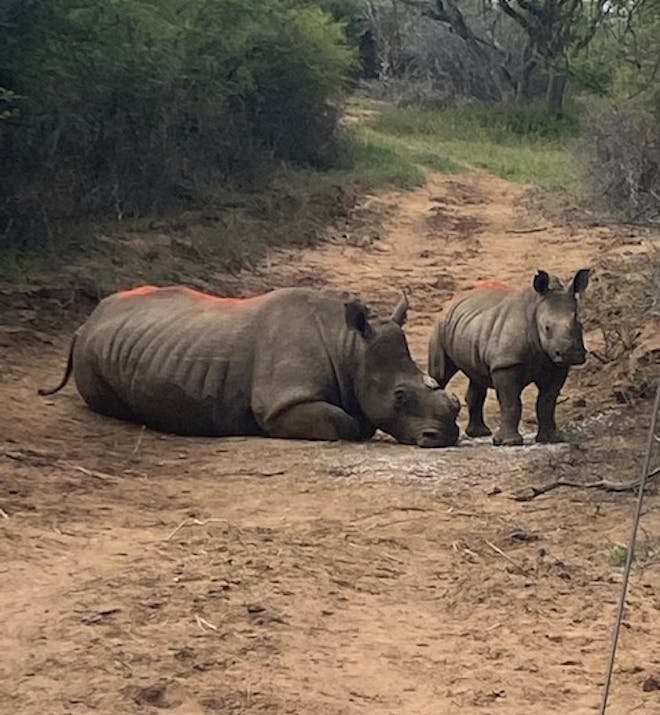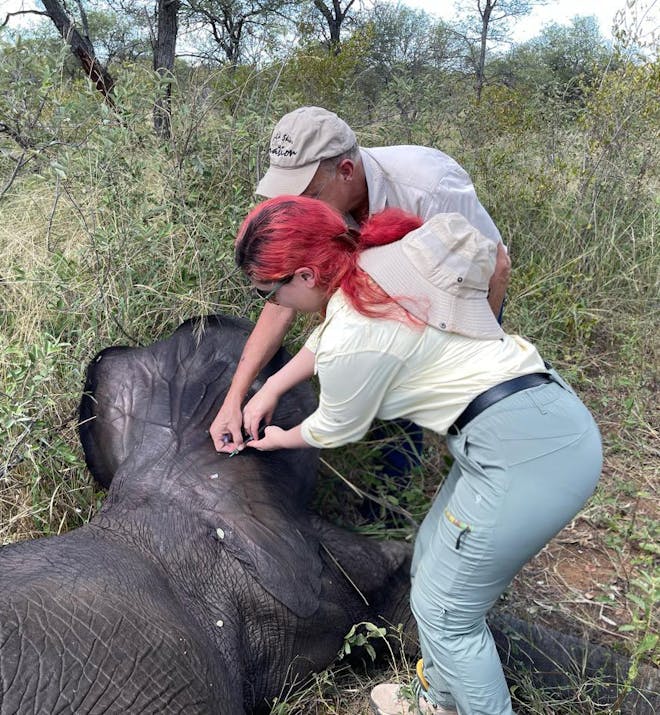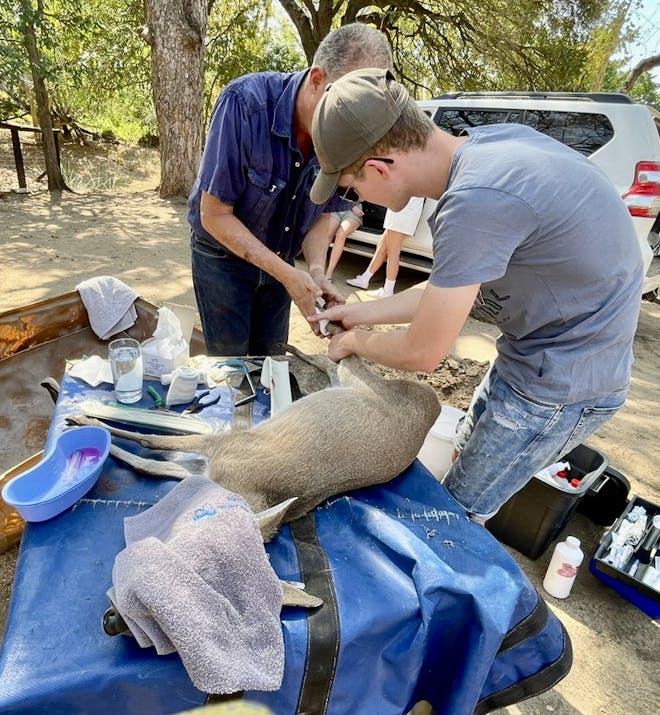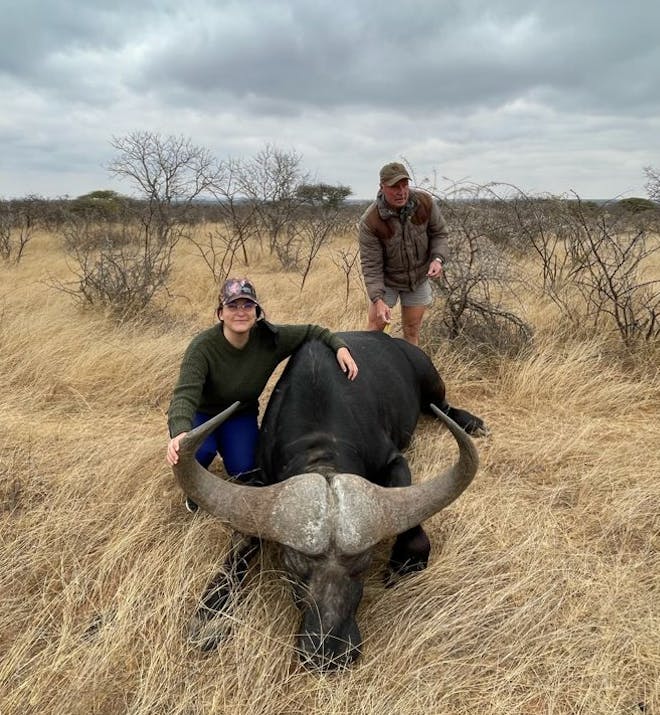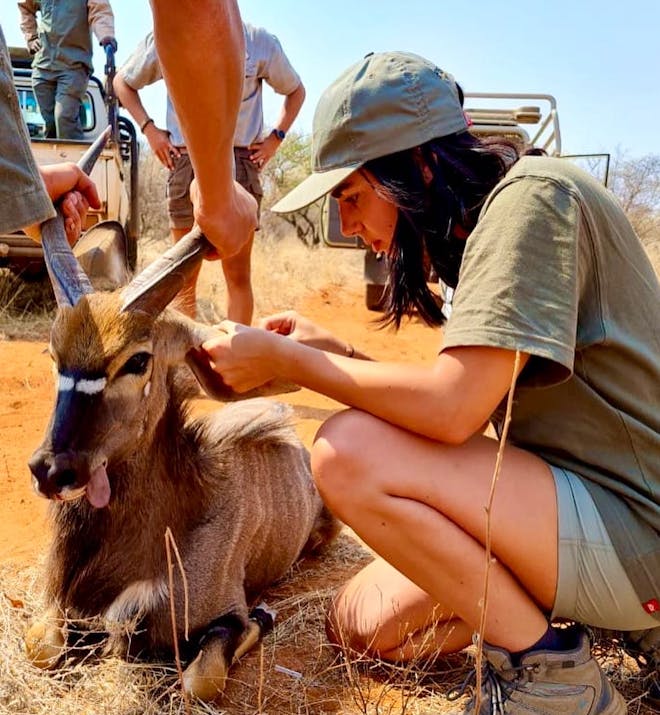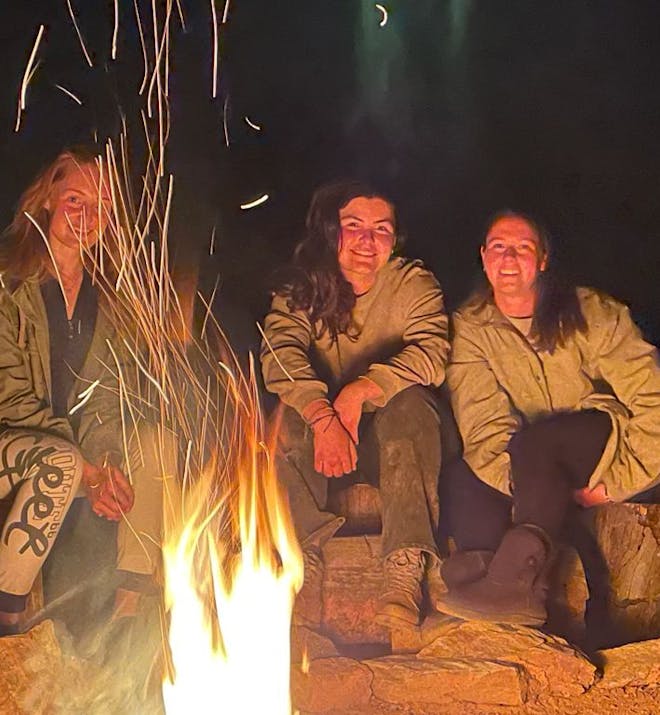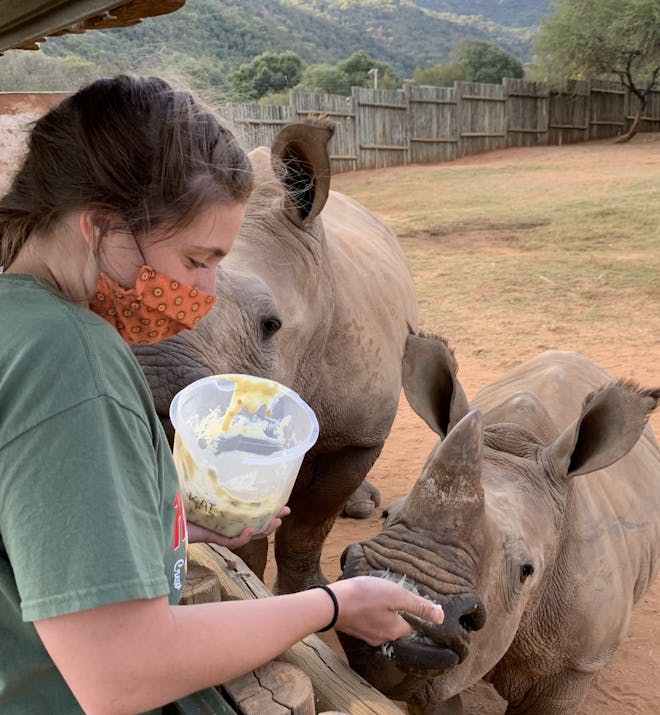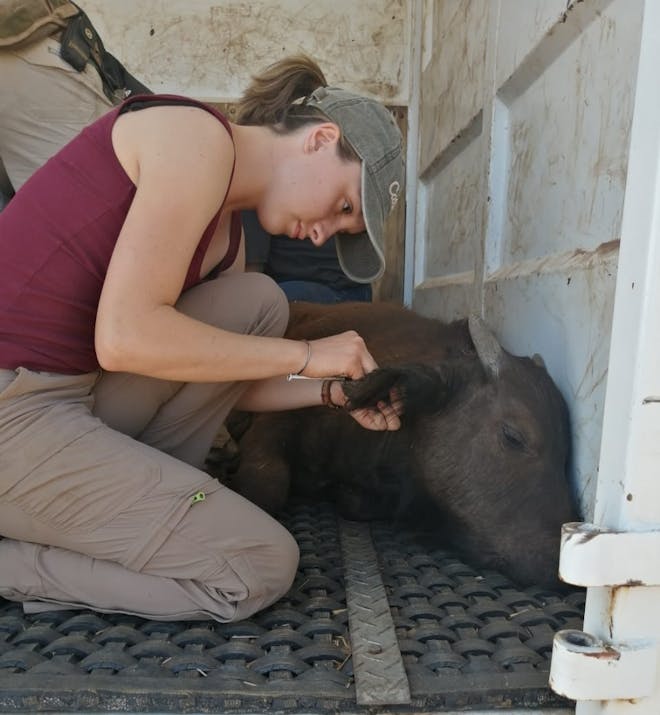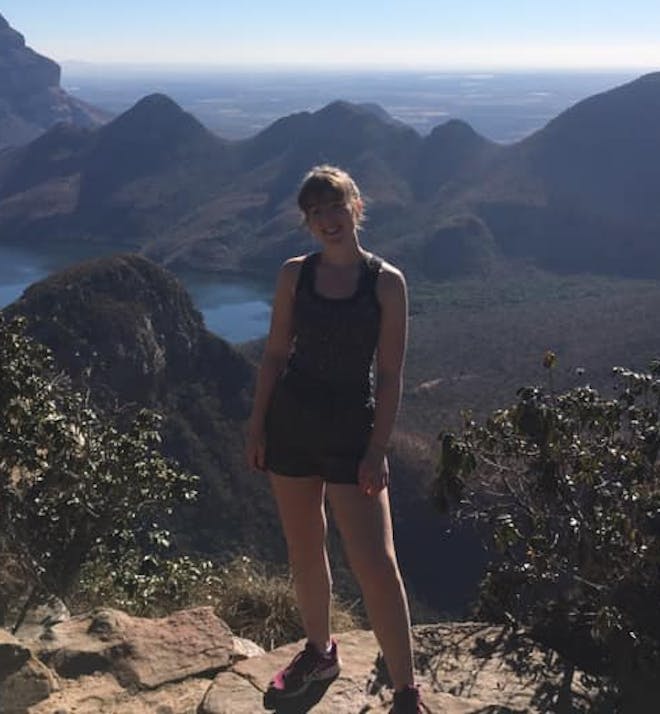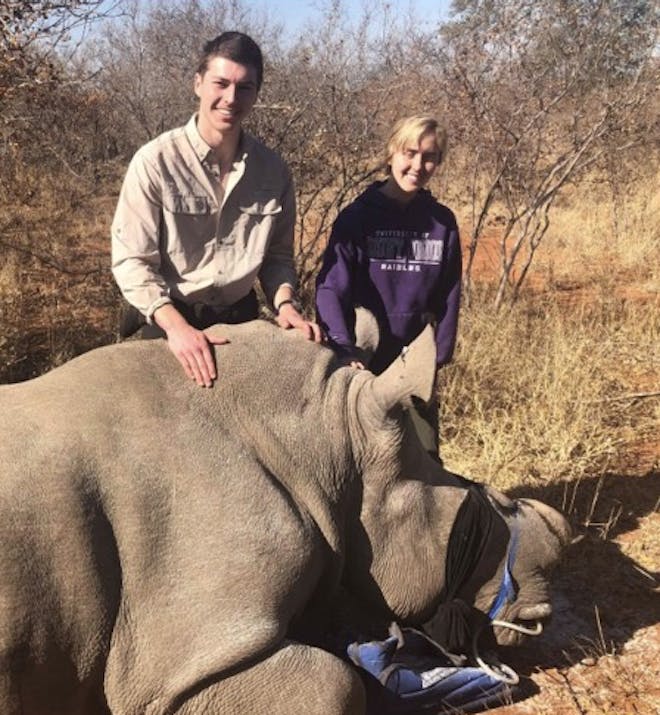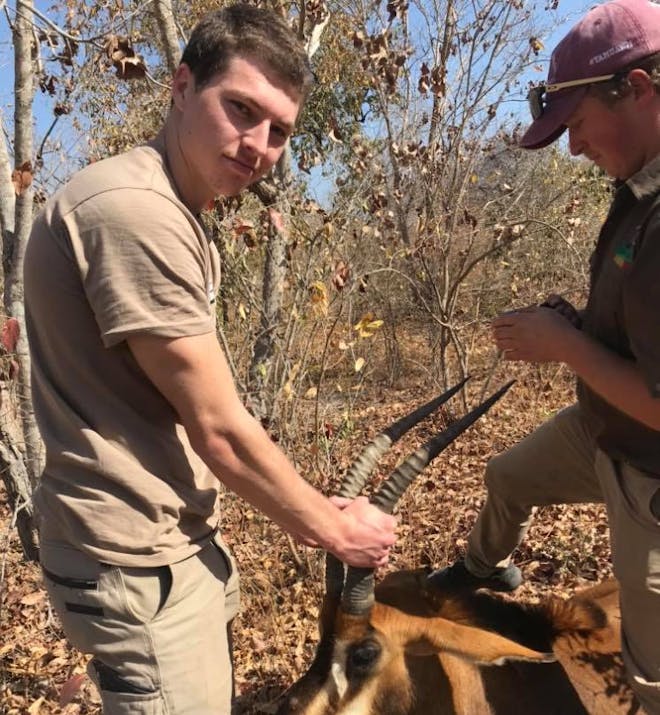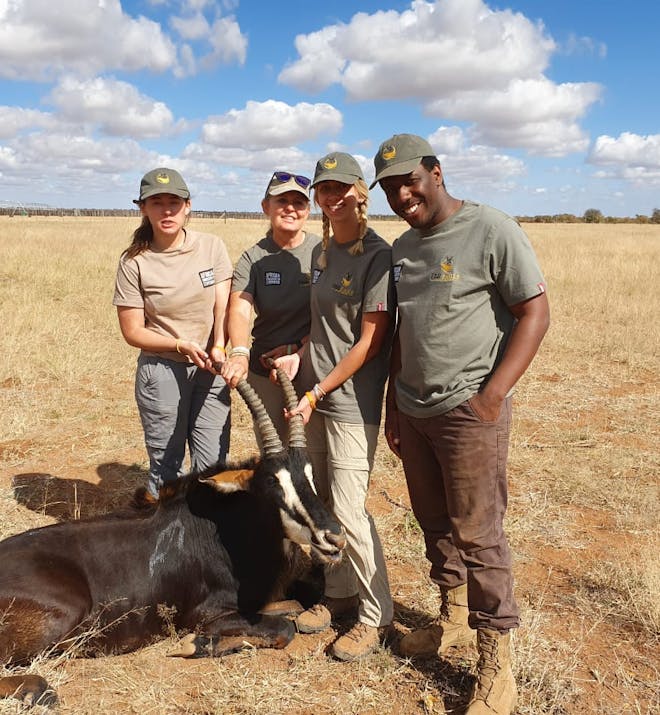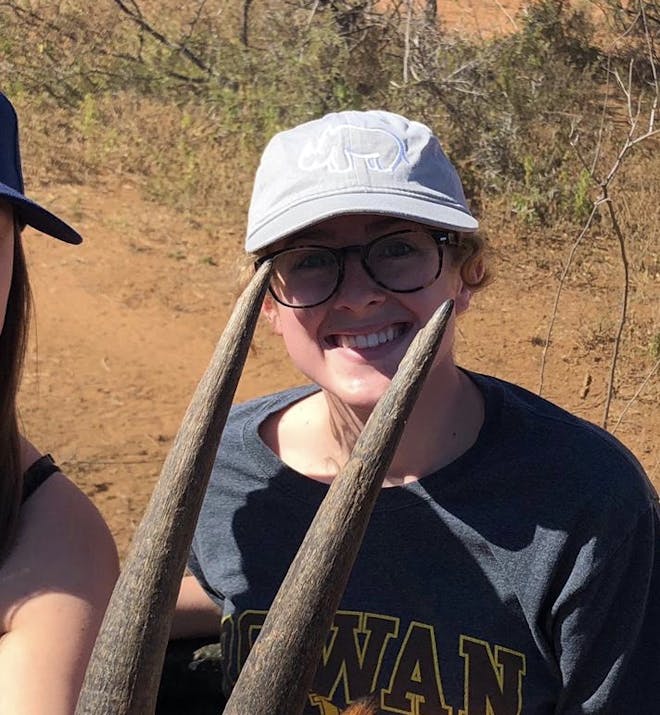


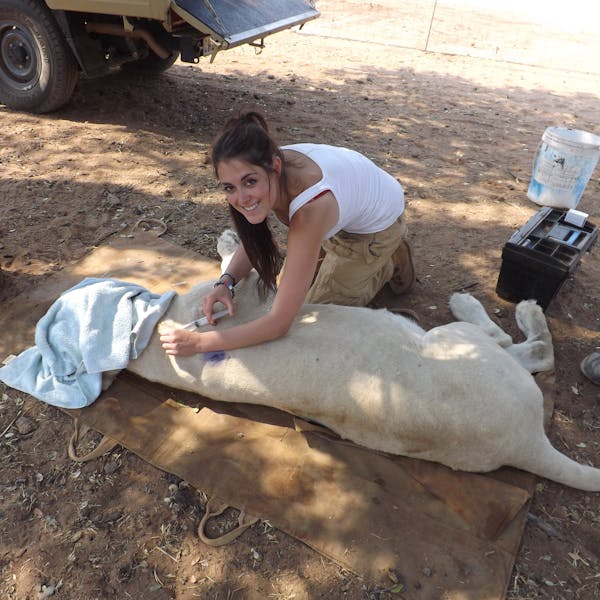
Wildlife Veterinary Projects & Experiences
Join experienced wildlife veterinarians in the field
Whether you’re bouncing across the bush in the back of an old jeep in pursuit of a darted giraffe or monitoring the vital signs of an immobilised buffalo – volunteering alongside an African wildlife vet isn’t just work experience, it’s the experience of a lifetime.
Why choose this experience?
As a veterinary volunteer, you’ll shadow some of Africa’s most experienced wildlife vets into the field, assisting them with immobilising and moving many different species, testing for diseases, performing necropsies and more. Your involvement will depend on your skill level. So whether you’re a seasoned veterinarian or vet nurse looking for a fresh challenge, a veterinary undergraduate seeking an adventurous internship, or you’re interested in studying veterinary science in future, this is the experience for you.
- Gain hands-on veterinary experience in the field
- Learn new skills and techniques to progress your career
- Work alongside some of Africa’s most experienced wildlife vets
- Make a meaningful contribution to Africa’s wildlife
Choose your wildlife veterinary project
Traveller Stories
Veterinary internships
If you enjoy the thrill of saving and enriching animal lives, how about saving the lives of some of the most endangered species in the world? Not everyone will have rubbed shoulders (quite literally) with lions, buffalo and cheetahs on their journey to becoming a vet.
A veterinary placement in Africa offers you the chance to work alongside some of the country’s most experienced vets, learning a range of practical skills to suit your level of experience.
- Wildlife health and conservation issues
- International veterinary medicine
- International laboratory methods
- Community-based veterinary care
Translating learning into practice: EMS and AHEMS
Our practical veterinary placements meet the requirements for Extra Mural Studies (EMS) and Animal Husbandry Extra Mural Studies (AHEMS). You will be well supported to start using some of the skills you’ve studied to meet some of the clinical EMS or AHEMS requirements of your course. Among other things, you will have the chance to assist with:
- Collecting samples from animals
- Animal post-mortems
- Animal inspections
- Field work with African wildlife species
Conservation spotlight: wildlife veterinary practice in South Africa
In South Africa, wildlife vets and nurses don’t just treat injured and sick animals. They also play a key role in the conservation and management of the region’s wildlife populations.
Much of South Africa’s wildlife is privately owned by large game reserves and breeding centres. This includes rare species of great ecological and financial value. Whether the estate owners are conservationists or business-minded, they all want to make sure animals enjoy a high standard of welfare and breed healthily.
Game reserve staff rarely carry veterinary qualifications, which means they rely heavily on vets to carry out important wildlife management tasks, including the capture and relocation of animals.
When volunteering with a vet in Africa, you’ll likely split your time between managing wildlife on game reserves and treating injured wildlife in rehabilitation centres, veterinary clinics and in the field. This combination of wildlife management and emergency care gives you the best possible introduction to real veterinary practice in South Africa – and the chance to pick up a wide variety of new career skills.
Darting and capturing wild animals
One of the common challenges you’ll experience as a wildlife vet volunteer in Africa is the need to sedate wild animals before working on them. Anybody who’s tried to approach a 2,000kg rhino in a state of distress will tell you it’s not a very good idea! As a volunteer vet, you’ll find out how to safely dart wild animals as well as learn about the sedative drugs used for the task.
In South Africa, only veterinarians have the training and licence to handle these drugs and the dart guns that deliver the correct dosage. This means darting is a core skill for the wildlife vets we work with and they’re world leaders in the capture and relocation of animals. If you’re interested in learning more about this part of wildlife veterinary practice, you couldn’t find a better set of tutors.
The thorny issue of rhino horn trimming
Rhinos in South Africa are under constant threat from poachers who remove their horns to sell, seriously injuring and usually killing the animal in the process. In an attempt to prevent poaching, many rhino populations now have to be humanely horn-trimmed by a qualified wildlife veterinarian.
As there is with any form of surgery, there’s an inherent risk with these operations. But combined with anti-poaching security, horn trimming has been proven to have a positive impact on rhino populations. This means South Africa’s wildlife vets are currently at the forefront of the international conservation movement to save the rhino.
Managing disease outbreaks
Wildlife vets in South Africa also monitor and prevent infectious diseases that can be passed from wildlife to domestic animals and, in extreme cases, even humans. In a country where fatal diseases such as rabies and tuberculosis are still prevalent, it’s vitally important that wildlife vets respond quickly to outbreaks and report any new instances to the state.
While dangerous animal-borne diseases haven’t been wiped out, South Africa’s veterinary community has successfully controlled infection levels. This has prevented the need for any culls or euthanasia programmes.
The challenges facing wildlife vets in South Africa
The work of wildlife vets in South Africa, while vital in managing animal populations and preventing the spread of infectious diseases, is not funded by the government. Due to the high prices of drugs and other medical equipment, wildlife reserve owners can also be reluctant to fund veterinary work. Access to sufficient quantities of the drugs used in the darting and immobilisation of animals is a constant challenge for veterinarians.
As a result, outside funding is vital to the well-being of Africa’s wildlife. Veterinary volunteers are an important source of this financial support and, if you choose to travel with us, a large part of your placement fee will provide much-needed aid to Africa’s veterinary community.
Explore other volunteering types
Adventure Learning Experiences
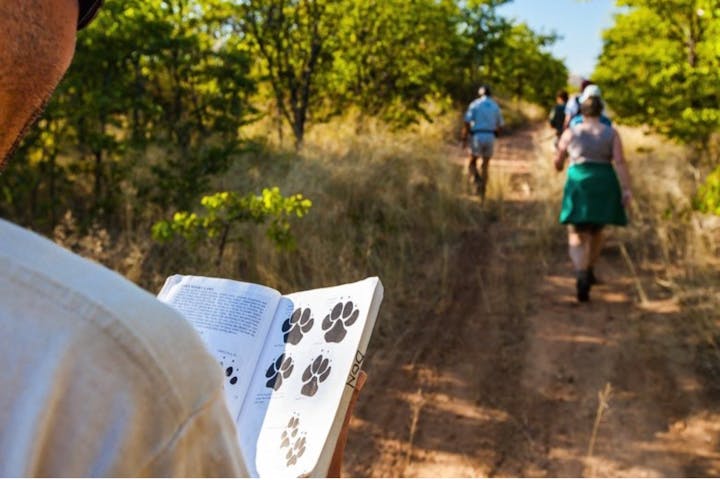
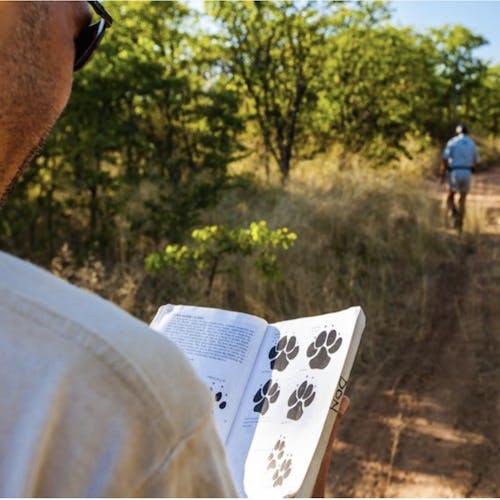
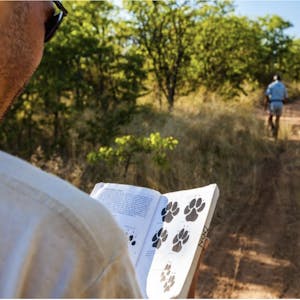
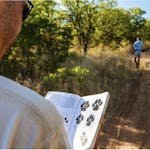
Gap Year Travel
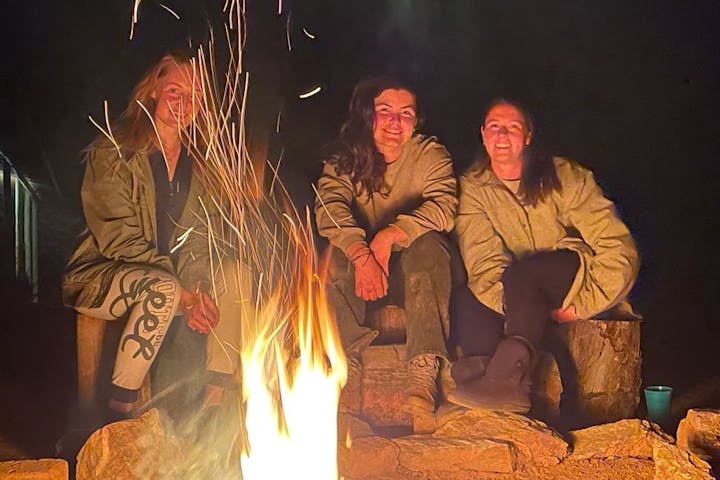
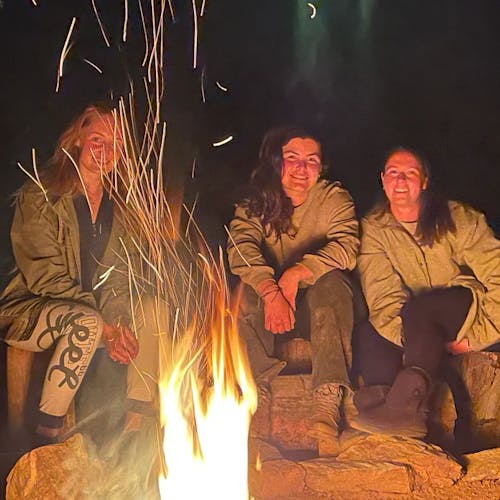
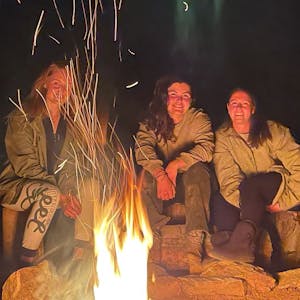

Internships
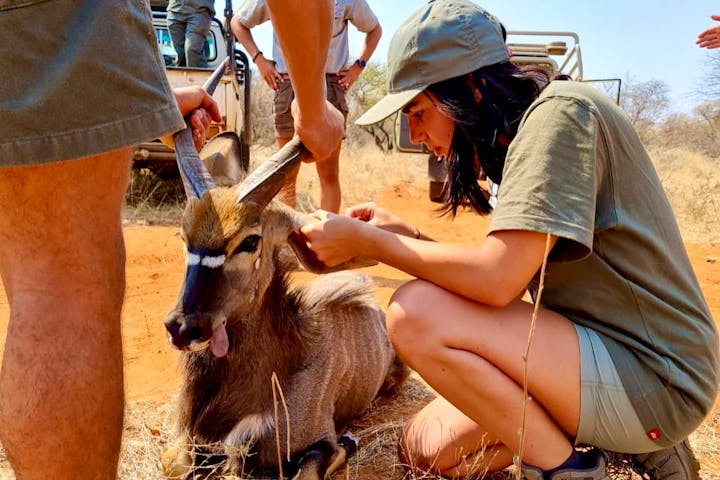
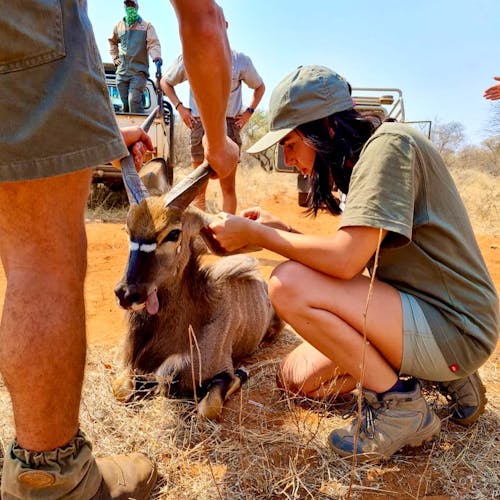
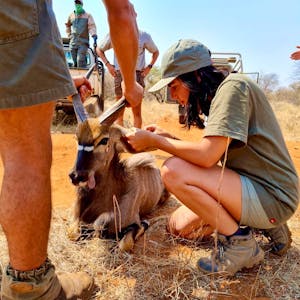
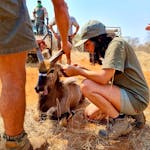
Marine Conservation Projects
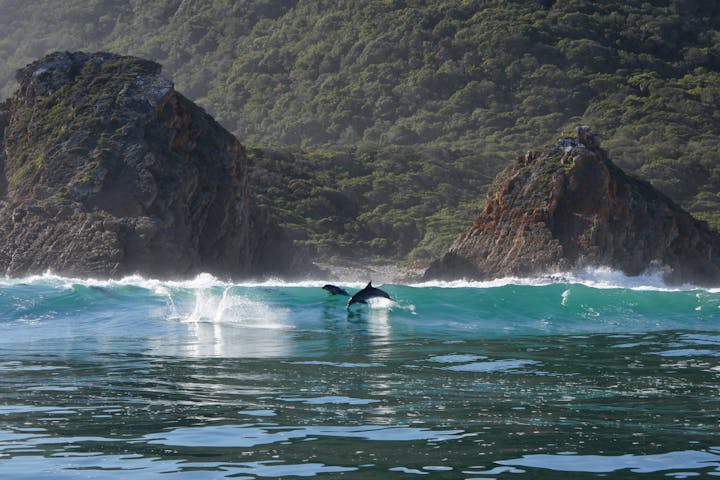
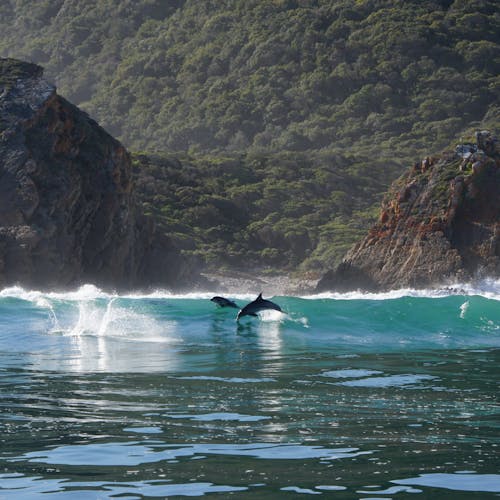


Sabbaticals & Career Breaks
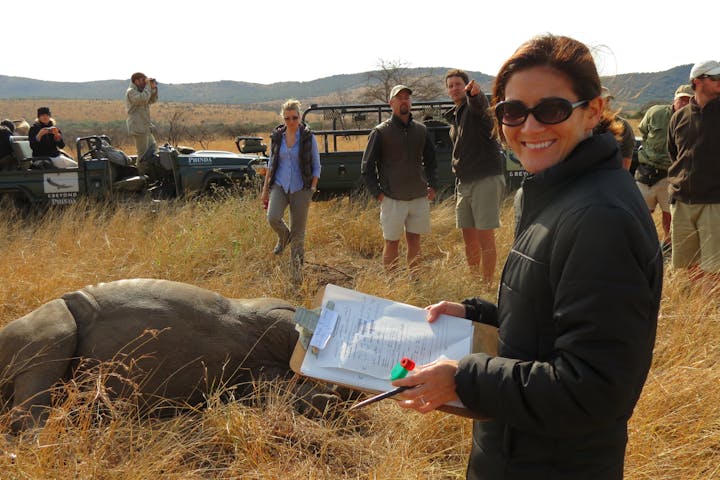
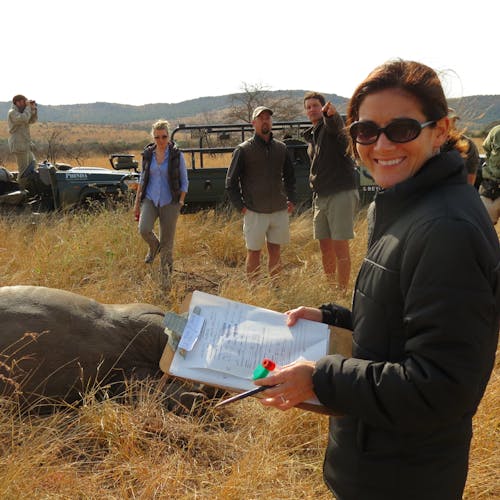
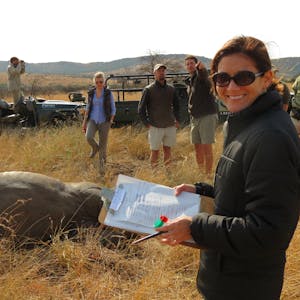
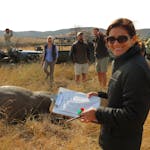
School & College Field Trips
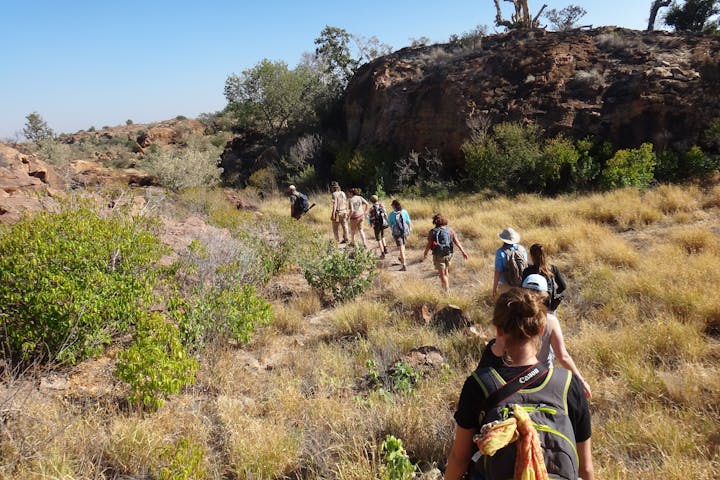
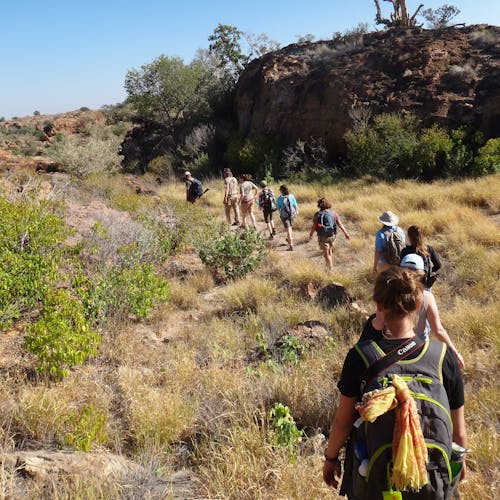
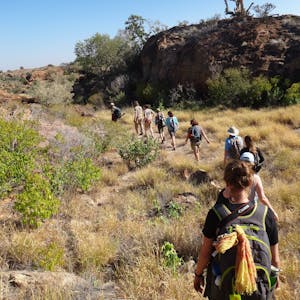
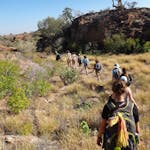
Short Experiences
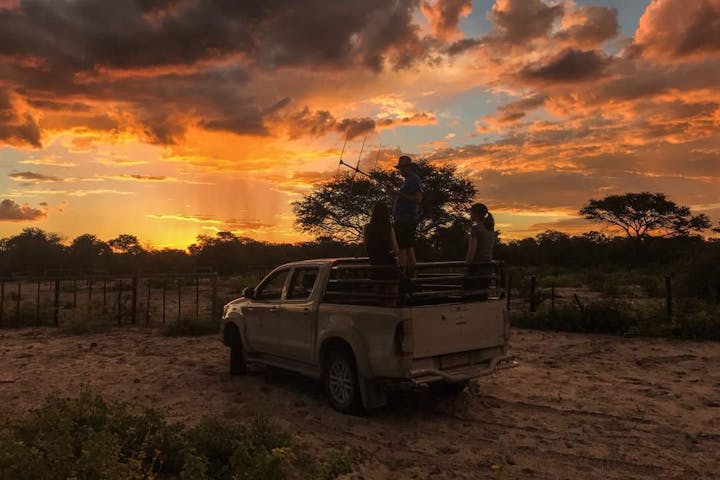
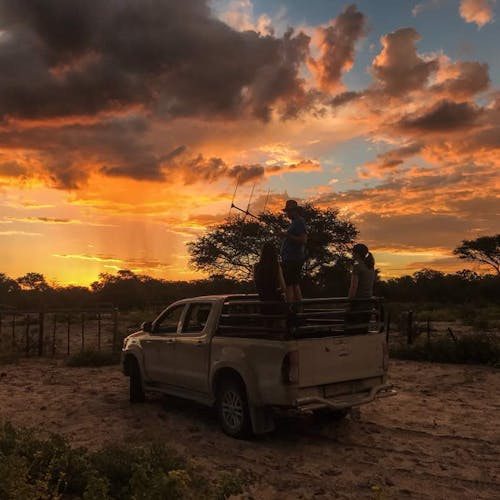
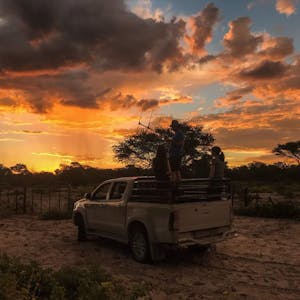
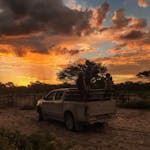
Wildlife Care & Rehabilitation
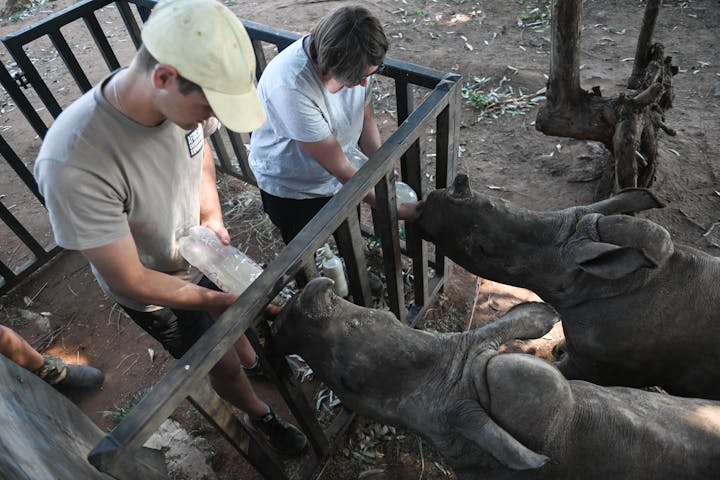
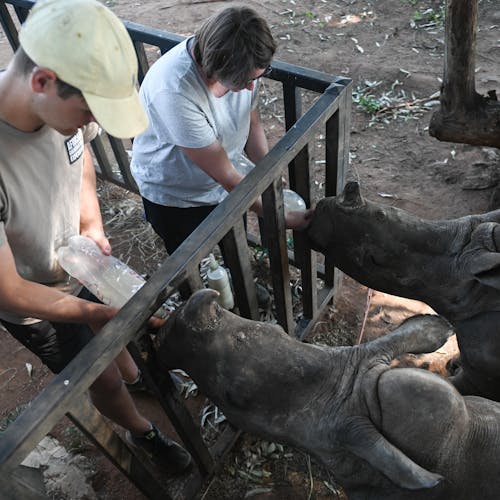
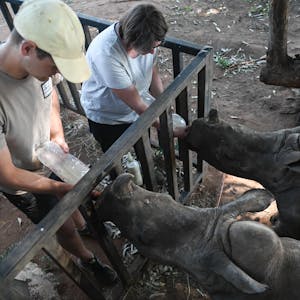
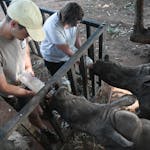
Wildlife Research & Management
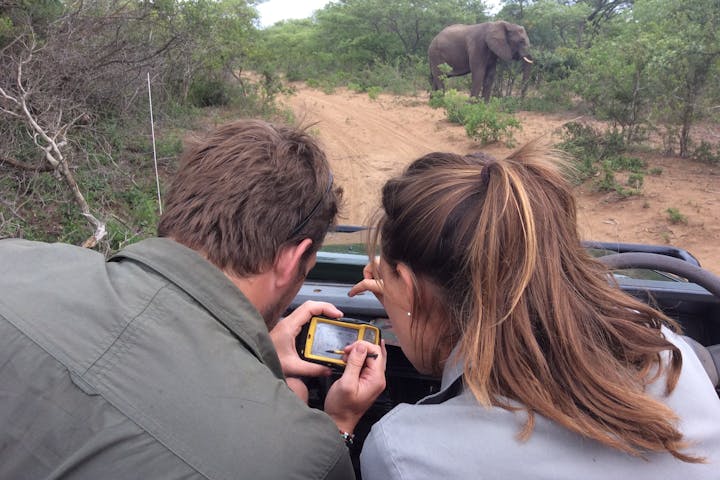
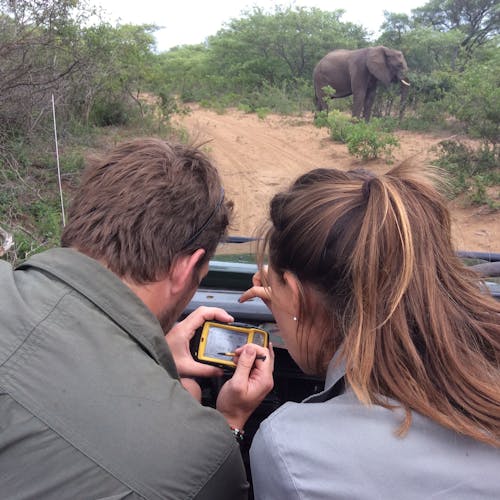
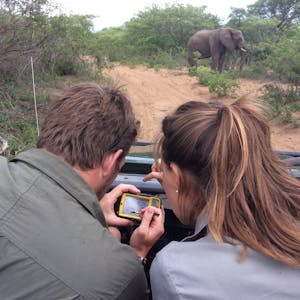
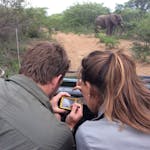
Or explore by animal
African Wild Dog Conservation Projects
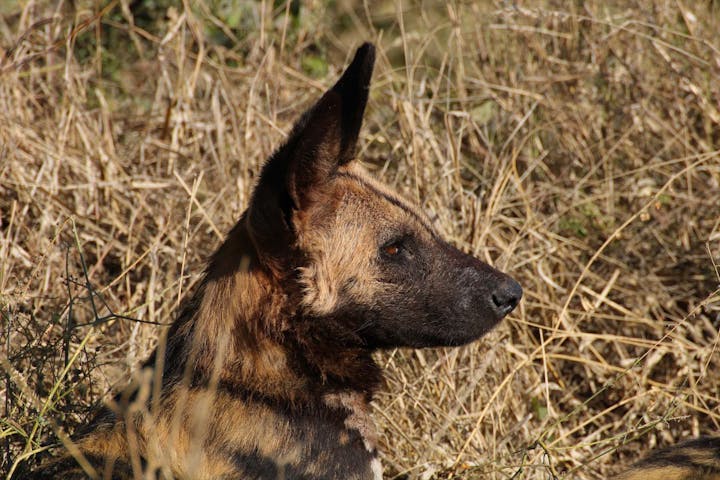
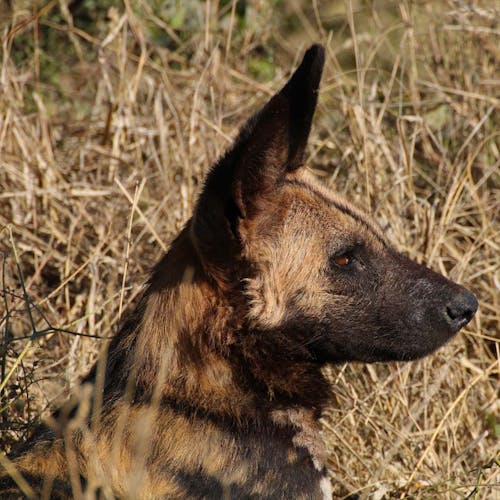
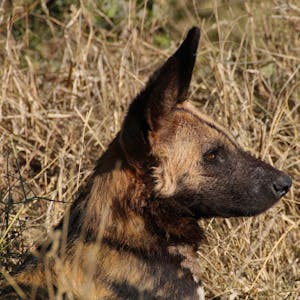
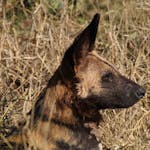
Elephant Conservation Projects
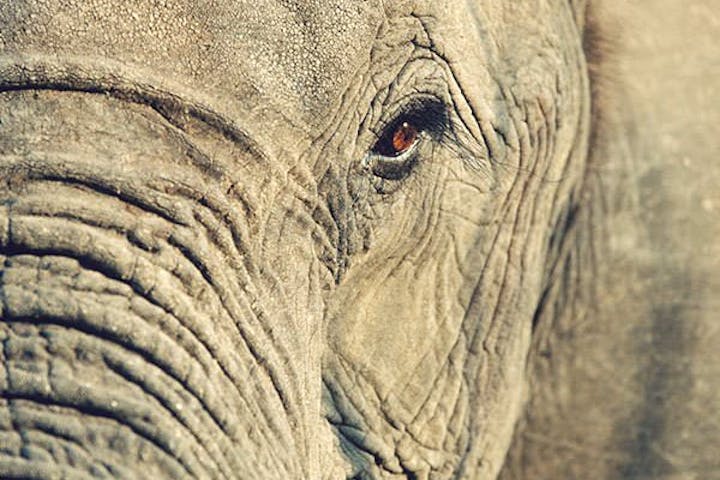
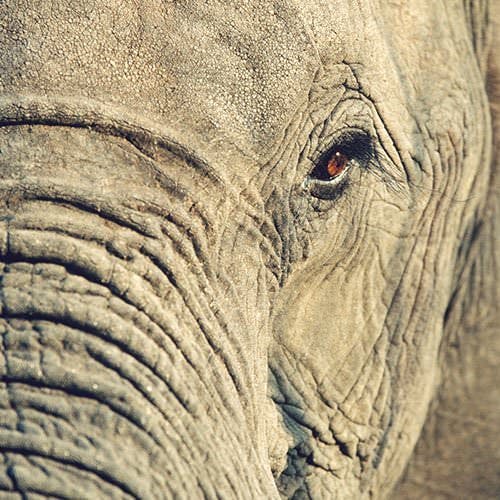
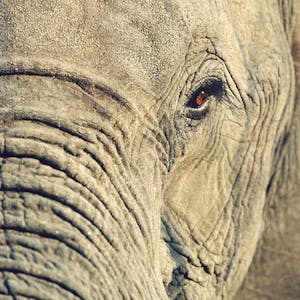
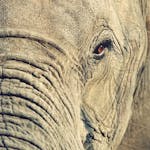
Lion Conservation Projects
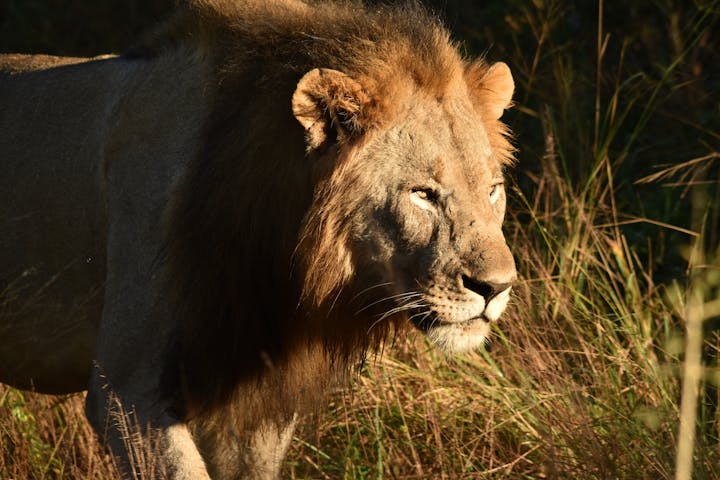
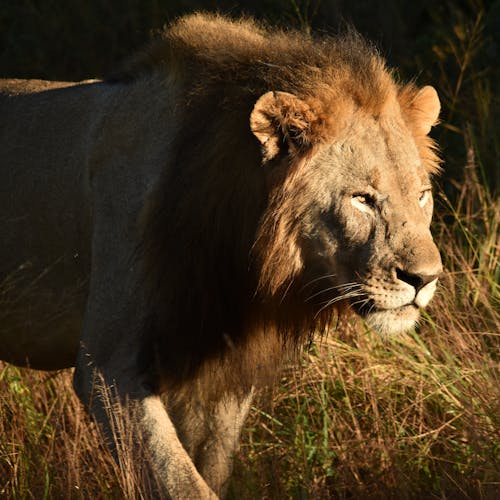
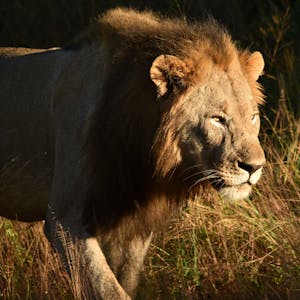
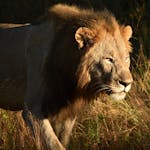
Rhino Conservation Projects
